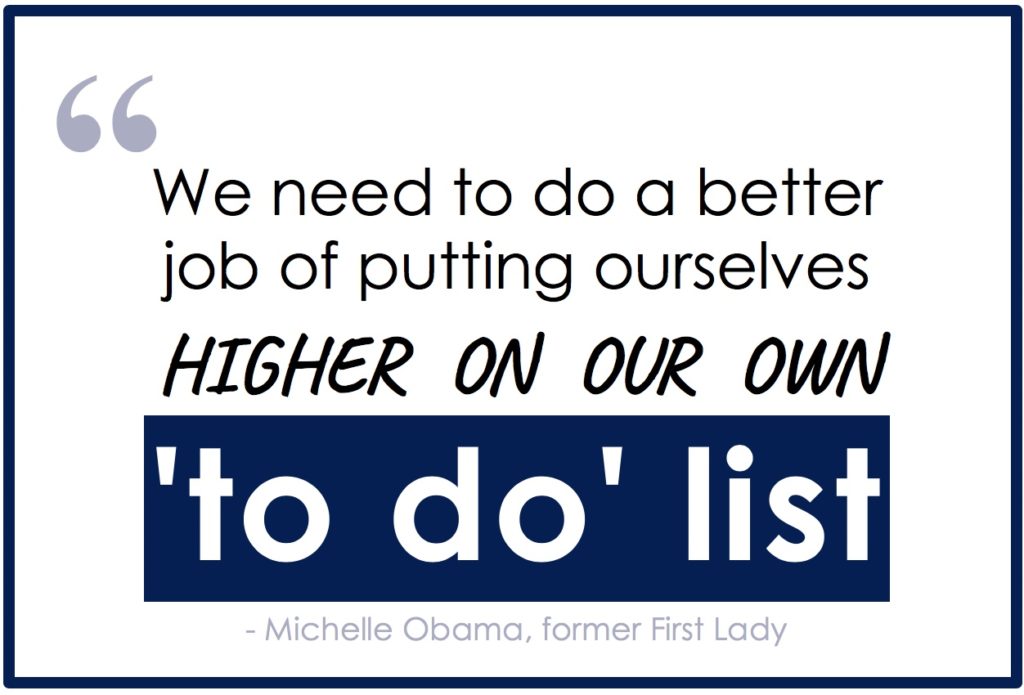I posted a vlog this week on LinkedIn about my reflections on having a mental-load-holiday, which enabled me to finish reading Becoming by Michelle Obama (or should I say “listen” since I opted for the Audible version). It’s a fascinating story of the life and career of America’s former first lady and a hefty read – but well worth the investment of time for the interesting perspectives it offers: on being the other half of the Obama force; on the power of education to change one’s destiny; and the insights it provides on the challenges and rewards of balancing work and family.
Although her perspective on parenting in the White House is one we couldn’t begin to imagine (and I certainly wouldn’t wish for!) many of Obama’s personal stories – of carrying the mental load, of shifting up and down career gears, and ultimately of the scramble to hold it together – will resonate deeply with many working parents.
And while we’re seeing more dads stepping up to share the load, it’s true that in most families there’s a primary carer who shoulders the majority of the parenting load on top of their workload. And in most cases, that primary carer is mum. Which is why our obsession with women “having it all” seems to endure; despite their being no comparable expectation or curiosity for men.

Michelle Obama’s recollections of the demands, the expectations and in the inequity of work-family demands reminded me of the now-classic study by Sylvia Ann Hewlett published in Harvard Business Review called Executive Women and the Myth of Having it All. This study found that:
- 49% of ultra-achieving career women aged 41-55 are childless;
- 33% of high-achieving women aged 41-55 are childless and 57% are unmarried;
- By contrast, the more successful a man is, the more likely he has a spouse and children. Only 19% of ultra-high achieving men are childless and 17% unmarried.
Hewlett’s thesis is that women don’t have it all; while men apparently do. But for those women who are working and parenting, it’s perhaps no surprise that what they value most at work is the gift of time: be it reduced-hours, career breaks, or the ability to work flexibly.
So is flexibility the “it” we’re all looking for? Or is “it” something else?
Of course flexible working is not just for mothers returning to work but for those with other caring commitments, health reasons, sporting interests, people looking for an alternative to retirement and those pursuing side projects.
So what does “having it all” mean to you? What does flexibility mean for you? And – if you’re a leader at work – how well do you appreciate the mental load and juggle that your team members are managing every single day that they come to work?





Leave a Reply